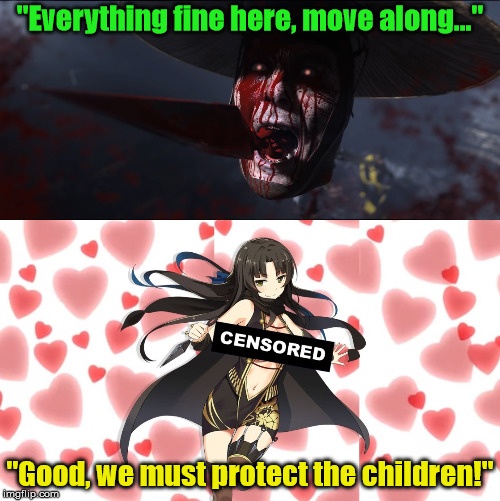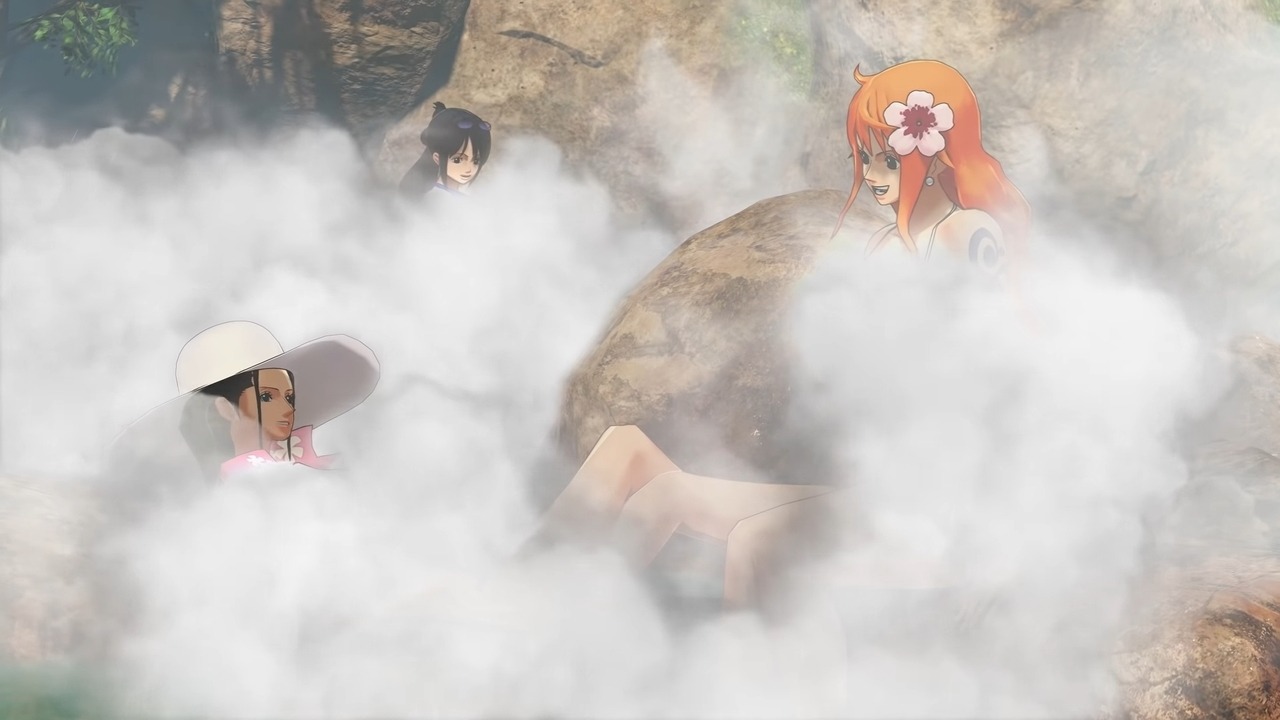Some recent updates:
There seems to be internal strife at Valve over their new content policies that allow for porn allowing potentially illegal porn as well (a policy that however extended to visual novels with no sex as well). An interesting development is that aging up the characters or adding scenes that show they are adults with IDs no longer cut it if the Steam reviewers deem the characters or the art style to be too youthful.
It's not a new thing, since the same kind of content is not allowed on comparatively laxer storefronts specialized in eroge games, however the takedown from this was that Valve is indecisive over when and when not to apply this newer policy, with only smaller eroge developers targeted for now, but games like Saya no Uta and Senran Kagura and the spiritual successor of Alone in the Dark left alone for the moment, probably owing to their popularity. The justification used (feels override facts) while used here against non credible (credibility would be the more appropriate rationale here) obvious 1000 year old dragon cases can be dangerous in the long run, because context omission is always dangerous.
More interestingly, in applying this newer policy Valve shifted to interesting practices like the bans having final effect and no recourse, and games that release incomplete on steam with external wink wink nudge nudge patches distributed elsewhere are getting banned for even thinking of this as a solution, as one more similar game fell down very recently.
A more rational explanation to this might be that Valve felt some pressure from payment processors and had no choice, but the other alternative that someone is gearing up for a hunt on fanservice games and testing the waters with those obvious quasi-illegal games is just as likely. In that event, game journalists like Kotaku which previously advocated for censorship of story themes and fanservice in RPGs have broke their radio silence on the whole censorship wave, to caracterize it as a drive to ban "sex games with young girls" which tries to lump the Sony censorship into the mix and justify it.
In other news,
Some Super Smash Bros Ultimate Japanese players are having fun on twitter with Incineroar's throw moves, Diddy Kong jumping at girls, and the black void in dresses that can be glitched out of visibility with a well timed visual effect from one of Ness' moves. Western game journalism is of course not happy, and so are some forums that run regular threads to hate on fan art and try and get it policed or removed. So outrage topics came like clockwork. The supposed solution is to "adjust" the hell of the game to patch out all of that.
If an update does just that, you know who to thank.
Finally,
an insight on some policies by the new Chinese policies mandated by the recently established policies.
Hints from these policies were brought to the mainstream through Ubisoft's recent drive to impose global censorship to match the Chinese region's visuals in a recent Tom Clancy shooter. The importance of that policy is sometimes overstated, considering most forget that when Vivendi attempted a hostile takeover on Ubisoft, the latter at the end of their wits and with few parties willing to bail them out had Tencent save them and get a sizeable share of the company. However it mustn't be downplayed.
Interestingly, some games were issued warnings to take corrective action, while others were completely banned with no recourse. The various violations are really interesting to read. I quoted some parts of that thread here, while bolding the more interesting parts (besides what's already known, like how puritanical China is).
- Overly revealing female characters
- Blood and gore
- Vulgar content
- Game visuals promote incorrect values (Overwatch)
- Distorted concepts of history and culture: Nominally it's supposed to mean Marxist historical materialism, but in colloquial use, it can refer to misrepresentation of history as well. The official Communist Party version of Chinese history is written into Chinese law as part of the PRC's constitution. Fantastical depictions of historical figures can be problematic, as is time travel, and unflattering depictions of revolutionary leaders is downright illegal.
- Rewards given based on rank: Something communism related probably.
- Game missions include fraud: Depiction of immoral acts ingame is an endorsement of these acts. The same thing is advocated for by Western game journalism but here it's enforced legally
- Inharmonious chatroom: a chat filter that doesn't go hard enough. Game journalism has run pieces before on word filters that didn't censor enough, that had the raw list accessible through datamining easily enough, that censored controversial words they would like to use but have contexts they will condemn the developer for even allowing, and so on. Latest one is the RPS journalist who harped on the FFXIV developers in person for condoning double-entendre textual sex sollicitation roleplay because the chat doesn't have an AI powerful enough to detect it and ban the filthy sinners.
It's very important to look at these aspects and learn the right lessons from this whenever you see game journalists who push for harsher and generalized application of one or more points out of these either by shaming the developer, the console / storefront owner, the rating boards, and in extreme cases the government directly, for not taking a hardline enough stance on these aspects



